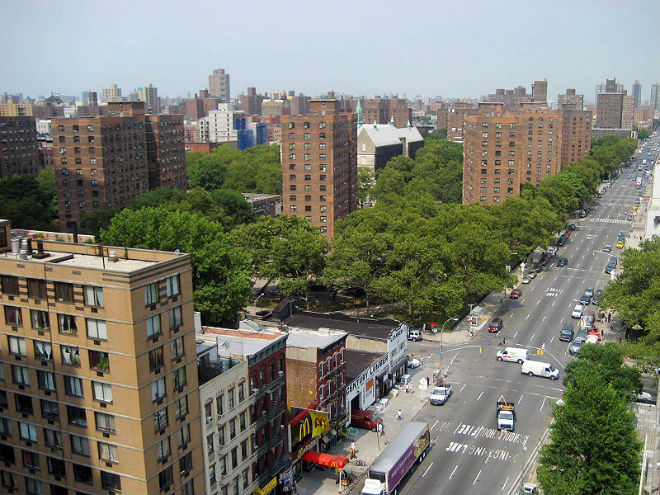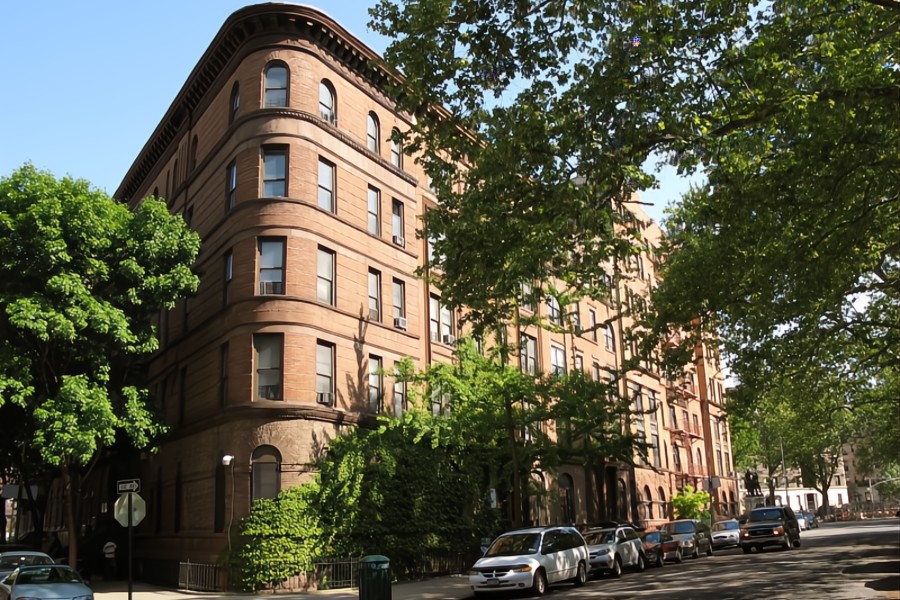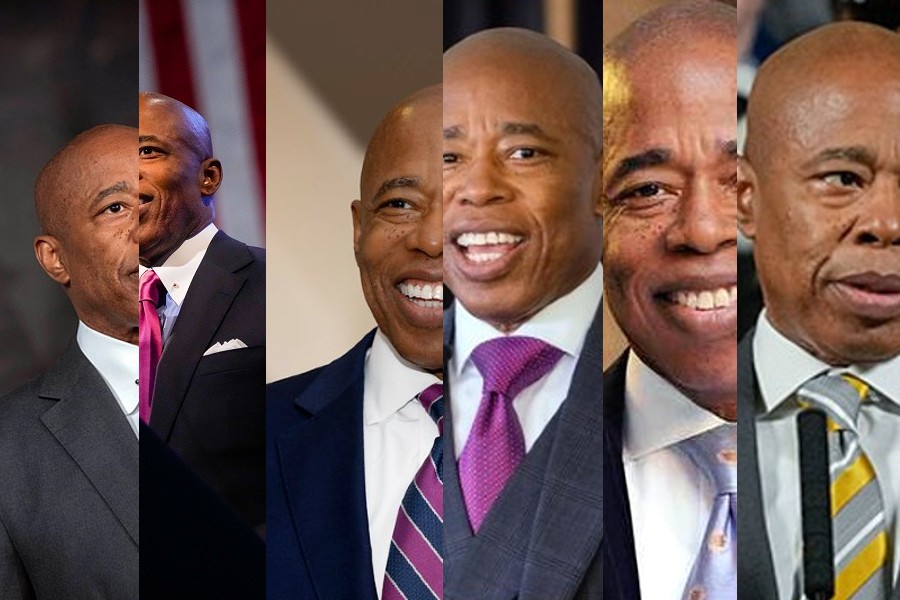 The Bill de Blasio administration today announced the release of its annual update on Open Data for All and the NYC Open Data Plan.
The Bill de Blasio administration today announced the release of its annual update on Open Data for All and the NYC Open Data Plan.
The Open Data for All and the NYC Open Data Plan this year pulls back the curtain on the digital government to show how the City collects data, how data powers city operations, and how publishing that data publicly creates value in communities across the five boroughs.
Over the last year, dozens of agencies have released datasets to the NYC Open Data Portal, bringing increased transparency to all aspects of the City’s operations, from the rental market to community projects and more. Over 600 new datasets have been published by 38 agencies, including:
- Department of Health and Mental Hygiene (DOHMH) datasets on Rooftop Drinking Water Tank Inspections, Dog Licenses and MenuStat (an online database of nutrition and menu information from top national restaurant chains)
- Department of Transportation (DOT) street furniture location information, including bus stop shelters, bike parking shelters, newsstands, and parking meters
- A series of data tables from a relational database on Housing Development Projects Receiving City Financial Assistance (Local Law 44) from the Department of Housing Preservation & Development
- 2017 Intimate Partner Violence Related Snapshots at the NYC community board-level from the Mayor’s Office to End Domestic and Gender-Based Violence (ENDGBV) (formerly known as the Mayor’s Office to Combat Domestic Violence (OCDV))
- The NYCgov Poverty Measure from 2005-2016, published by the Mayor’s Office of Economic Opportunity
The 2018 Open Data report features NYC Data at Work, a series of vignettes highlighting how open data powers government efficiency in NYC from emergency services to M/WBE contracting opportunities, as well as ways New Yorkers use open data in their products, research, and advocacy. It also reveals over 400 new datasets that will be added to the Open Data Plan for future release and over 200 unique agency civic engagement commitments. The report is accompanied by a new video on the Open Data homepage that shows the public data behind City operations New Yorkers encounter every day.
“Open Data for All brings transparency to all aspects of New York City operations, making for a more efficient, collaborative, and resourceful government,” said Samir Saini, Commissioner of the Department of Information Technology and Telecommunications. “I am thrilled to see our city’s public data being put to such great use by innovators, startups, technologists, and New Yorkers everywhere. Open Data is here to stay and we are committed to carrying it forward.”
“Making data more accessible to both the public and those inside government is core to Operations’ efforts to make the City more effective and efficient,” said Jeff Thamkittikasem, Director of the Mayor’s Office of Operations. “Thanks to MODA, DOITT, and 38 City agencies for their work this year to make over 600 additional datasets available, well-documented, and usable. We look forward to enabling even more access.”
“NYC Data at Work demonstrates just a few ways that public data – and the dedicated public servants who collect, manage, and analyze it – make New York City a better place to live,”
“NYC Data at Work demonstrates just a few ways that public data – and the dedicated public servants who collect, manage, and analyze it – make New York City a better place to live,” said James Perazzo, Acting Director of the Mayor’s Office of Data Analytics. “Our commitment to reproducible analysis and fact-based governance is making NYC Open Data an increasingly routine part of City operations.”
“Open Data for All builds on the City’s commitment to increase transparency in how the City operates,” said Alby Bocanegra, Interim Chief Technology Officer, Mayor’s Office of the CTO. “Access to the data also empowers entrepreneurs to innovate and build new tools that can benefit all New Yorkers.”
“New Yorkers are hungry for information about the buildings they work and live in – and they should be able to find it!” said Archana Jayaram, Deputy Commissioner for Strategic Planning and Policy at The Department of Buildings. “The Department of Buildings is a committed Open Data partner – with upcoming releases on the horizon including electrical and elevator permits and filings and place of assembly determinations, which state how many people can safely occupy a building or space. With an unprecedented investment in modernizing DOB, we expect to continue to build on our Open Data partnership as our digital transformation continues.”
“TLC continues to support the City’s vision of Open Data for All by helping the public make sense of the tremendous amount of data the agency collects to regulate the for-hire industry in New York City,” said Taxi and Limousine Commission Assistant Commissioner for Data & Technology Rodney Stiles. “Our taxi and for-hire trip data not only describe how people get around the city but also tell a story of how drivers’ work hours and pay have changed over the last few years. As the agency sets new standards for driver pay this year, we are proud to have drivers’ issues highlighted in the new NYC Data at Work feature.”
In addition, the NYC Open Data team is calling for the creation of the first-ever Open Data Advisory Council and Open Data Youth Leadership Council. The Advisory Council will create a forum to develop strategic partnerships as well as formalize the channel for presenting and receiving feedback on NYC’s Open Data strategy. The open call and search process has begun and seeks representation from City agencies, nonprofits, academia, advocates, the private sector and the community to serve on an advisory board for the NYC Open Data team. High School students are encouraged to apply to the NYC Service Youth Leadership Council, which provides an opportunity for students to share ideas to create community solutions by leveraging open data tools to make change happen in neighborhoods and schools. For more information or to apply, visit the application pages for the NYC Service Youth Leadership Council and the NYC Open Data Advisory Council.
“Youth Leadership Councils encourage teens to develop leadership and civic skills around issues of policy, practice, and advocacy service by diving into community issues, and NYC Open Data allows youth to research and understand their local neighborhoods in new ways,”
“Youth Leadership Councils encourage teens to develop leadership and civic skills around issues of policy, practice, and advocacy service by diving into community issues, and NYC Open Data allows youth to research and understand their local neighborhoods in new ways,” said NYC Chief Service Officer Paula Gavin. “NYC Service is thrilled to see the launch of a new Youth Leadership Council for the NYC Open Data Program, as it will help bridge the information gap for young people and ensure more equitable access to valuable research tools.”
“I passed the Open Data Law because government works for everyone, and unless there’s a good reason not to, datasets built by government agencies should be available for everyone to analyze, use for research, problem-solve, and build new apps and tools around,” said Manhattan Borough President Gale A. Brewer. “It’s been thrilling to see our open data put to use by government, students, academics, the private sector, and our growing civic tech community. I thank the administration for continuing to pursue implementation of the Open Data Law and open-data friendly policies.”
“Open data powers the research, analysis, and reporting of essential city services. The more varied datasets we incorporate today into the Open Data For All and the NYC Open Data Plan, the more future generations will stand to benefit from historical statistics. This annual report shows a true commitment by the City of New York to a more transparent and efficient government, and we will continue to expand these efforts so that all have access to this important information,” said Council Member Koo, Chair of the Committee on Technology.
“The Open Data Portal has information on anything from City dog licenses issued to City Council discretionary funding, over 600 new datasets by 38 agencies added just this year,” said Council Member Ben Kallos. “Information is power and the work New York City’s has done to improve and expand access to Open Data is making us a better City through transparency every day. We should continue to empower New Yorkers with this data and keep up the work toward an official NYC Open Data strategy. Thank you to Mayor de Blasio for his plan for Open Data for All and to Samir Saini, Commissioner of the Department of Information Technology and Telecommunications for his continued work to expand that vision.”
“Taxpayers deserve accountability from their government, and increasing access to datasets on how the government functions are essential in a democracy. Increased transparency to all aspects of New York City’s operations is something that I can truly advocate for, and I hope this trend of greater accountability and oversight continues. I applaud the city on its Open Data Plan,”
“Taxpayers deserve accountability from their government, and increasing access to datasets on how the government functions are essential in a democracy. Increased transparency to all aspects of New York City’s operations is something that I can truly advocate for, and I hope this trend of greater accountability and oversight continues. I applaud the city on its Open Data Plan,” said Council Member Holden.
“The New York City Annual Open Data Report demonstrates once again that New York City continues to be the world leader in the open public data movement,” said Andrew Rasiej, Founder and CEO of Civic Hall. “This year’s report further points out how open government data makes government more transparent and accountable to citizens while opening the door to private sector innovation and deeper civic engagement.”
“We love biting into bits and are ecstatic to see more New Yorkers biting into the big apple’s data,” said Noel Hidalgo, Executive Director of BetaNYC and member of the NYC Transparency Working Group. “The Mayor’s emphasis on Open Data for All continues to be our collective rallying cry. With over a million unique users, 629 new datasets, and an ever-increasing interest in open data events, we are honored to be a partner and collaborator in making complex government information accessible to all. We congratulate the open data team for outlining a detailed framework for public engagement, agency engagement, dataset automation, and ensuring every dataset has a data dictionary. We hope to see all of you at 2019’s Open Data Week!”
“We’re happy to see the City of New York’s Open Data initiative continue to evolve and gain momentum. The Open Data Annual Report for 2018 shows the public is heavily using the City’s open data, and the City is making solid progress towards fulfilling the Open Data Law. The MODA/DoITT Open Data team did three things in 2018 that we think are especially worth noting. First, the team automated 38 new datasets — for a total of 246 — and identified 300 more datasets that can be automated. Automating data sets is crucial to making open data sustainable, and we hope the City accelerates its efforts here. Second, the team produced data dictionaries for 89% of data sets. Without a data dictionary, open data is near worthless. Third, the team uniformly geo-coded for 80% of data sets. The 2012 Open Data Law called for a revolution in how New York City government shares its mountains of public data, and these are the nuts and bolts of that revolution,” said John Kaehny, Executive Director of Reinvent Albany and founding co-chair of the NYC Transparency Working Group.
“A robust open data regime allows the public to assess its representatives, is essential to ensuring a more transparent government, and provides an important resource to many businesses and entrepreneurs,” said Julie Samuels, Executive Director of Tech:NYC. “The latest disclosures show New York is improving on this front, and we’re happy that the Mayor is so committed to making government accountable to its people.”
“As librarians and archivists, we believe that equal and open access to information builds informed communities, and informed communities are essential to democracy. Congratulations to the NYC Open Data team for their excellent work outlined in the Open Data for All report.”
“The Metropolitan New York Library Council (METRO) is a member network of almost 250 public, academic, and other libraries and archives in New York City. This year, METRO was home to a pilot project, Metadata for All, that brought librarian expertise to the NYC Open Data Portal to make data easier to find and use,” said Nate Hill, Executive Director of METRO. “As librarians and archivists, we believe that equal and open access to information builds informed communities, and informed communities are essential to democracy. Congratulations to the NYC Open Data team for their excellent work outlined in the Open Data for All report.”
“William Gibson declared in 1984 that ‘The Future is Already Here. It’s Just Not Evenly Distributed.’ The same is true with NYC Open Data: the data is here, its impact and use are just not evenly distributed,” said Stefaan G. Verhulst, Co-Founder of The GovLab, New York University. “As such, we are very much impressed with the NYC Open Data team for making progress in 2018 toward making Open Data more evenly distributed in New York; empowering every New Yorker.”
“The ability to access this data easily not only helps renters find great places to live, while avoiding buildings with potential hazards such as mold or vermin, but it also helps recognize the many great landlords providing excellent housing for millions of New Yorkers.”
“As the founder of Rentlogic, a tech-powered standards association that grades apartment buildings from A through F based on health and safety standards, we could not exist without the City’s Open Data,” explains Yale Fox, founder, Rentlogic. “The ability to access this data easily not only helps renters find great places to live, while avoiding buildings with potential hazards such as mold or vermin, but it also helps recognize the many great landlords providing excellent housing for millions of New Yorkers.”
The City of New York passed the Open Data Law in 2012, requiring each City agency to identify and ultimately publish its digital public data to the NYC Open Data Portal. In 2015, Mayor de Blasio introduced Open Data for All, a vision to maximize New Yorkers’ engagement with City data. As of this year, agencies are required to make commitments to engage their communities using their datasets, beyond just publishing them. Commitments include advertising agency’s data on its website and social media, producing curricula for how to use their data, speaking about agency data at a public event or in schools, and writing blog posts.
In December 2017, the City passed new legislation extending the duration of the Open Data Law indefinitely. Meanwhile, the Open Data Portal has seen record use, recording more than 1 million annual visitors since the last Open Data update. The Mayor’s Office of Data Analytics (MODA) and the City’s Department of Information Technology and Telecommunications (DoITT) partner to form the Open Data team.
The report can be found here.
For more information, visit nyc.gov/DoITT
Become a Harlem Insider!
By submitting this form, you are consenting to receive marketing emails from: . You can revoke your consent to receive emails at any time by using the SafeUnsubscribe® link, found at the bottom of every email. Emails are serviced by Constant Contact








